BCN remembers David Hooper who passed away in a Taunton (Somerset) nursing home on Sunday, May 3rd 1998. Probate (#9851310520) was granted in Brighton on June 24th 1998.
Prior to the nursing home David had been living at 33, Mansfield Road, Taunton, TA1 3NJ and before that at 5, Haimes Lane, Shaftesbury, Dorset, SP7 8AJ.
For most of the time between Reigate and Shaftesbury David lived in Whitchurch, Hampshire.
David Vincent Hooper was born on Tuesday, August 31st 1915 in Reigate, Surrey to Vincent Hooper and Edith Marjorie Winter who married in Reigate, Surrey in 1909. On this day the first French ace, Adolphe Pégoud, was killed in combat. He had scored six victories.
David was one of six children: Roger Garth (1910-?), Edwin Morris (1911-1942), Isobel Mary (12/01/1917-2009), Helene Edith (1916-1982) and Elizabeth Anne Oliver (1923-2000) were his siblings.
David attended Whitgift School, Croydon, and (thanks to Leonard Barden) we know that “although there was no chess played there in his time he was proud of later accomplishments and often wore an Old Whitgiftians tie, especially for posed photos including this article’s title image and the one in the Chess Notes article by Edward Winter (see the foot of this article).
Recorded in the September 1939 register David was aged 24 and living at 94, High Street, Reigate, Surrey:

In 2021 this property appears to be a flat (rather than bridge) over the River Kwai Restaurant:
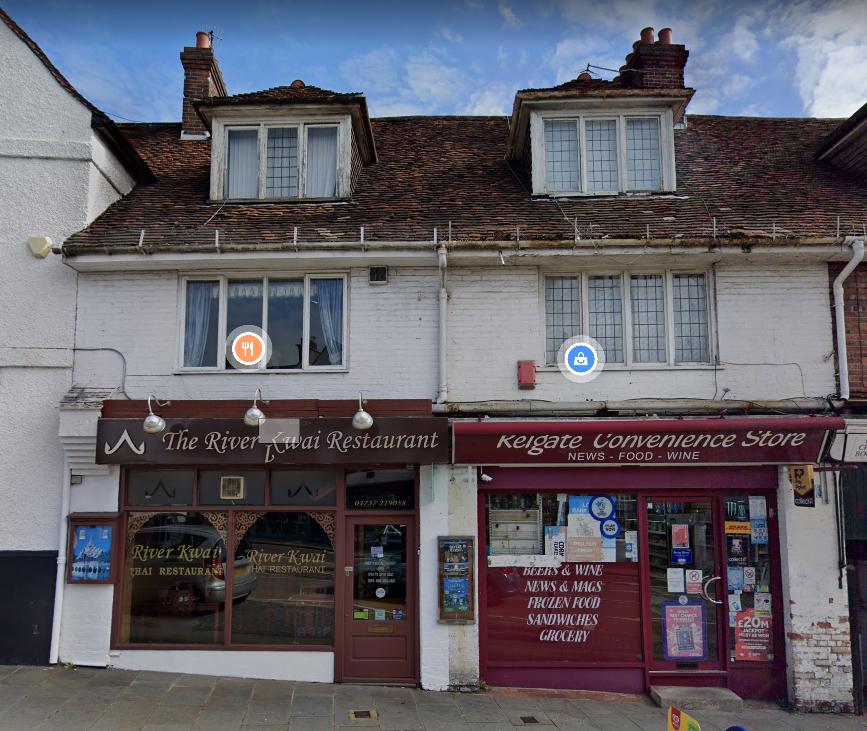
Living with David was his sister Isobel who was listed a “potential nurse”. David’s occupation at this time was listed as Architectural Assistant and he was single. We think that three others lived at this address at the time but they are not listed under the “100 year rule”. We know that David was also a surveyor and went on to attain professional membership of the Royal Institution of British Architects (RIBA).
In the Bath Chronicle and Weekly Gazette May 27th 1944 there appeared this report of a simultaneous display on Empire Day (May 24th) at Dr. Marsh’s house:
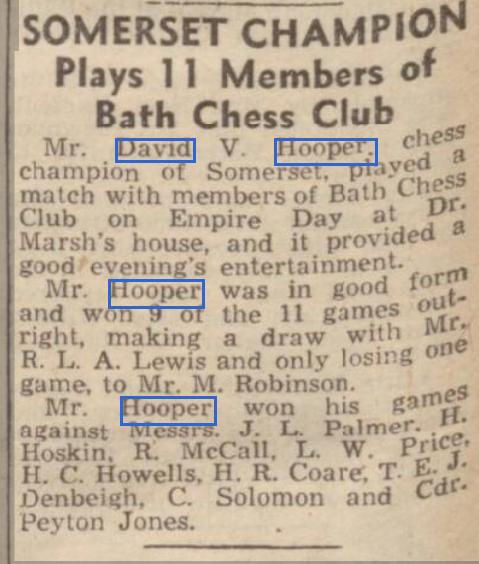
and from The Western Morning News, 9th April 1947 we have:
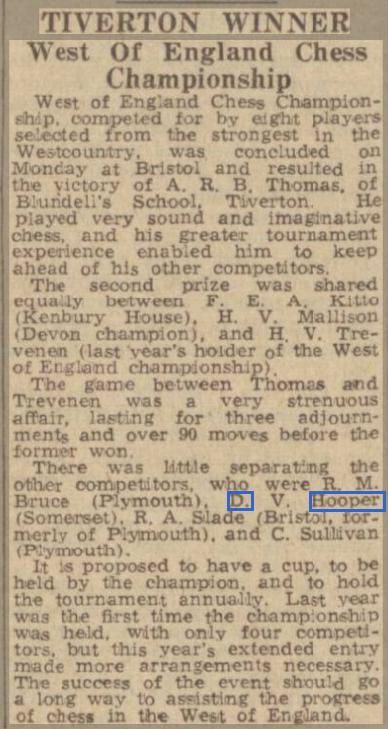
and then from The Nottingham Evening Post, 16th August 1949 we have:
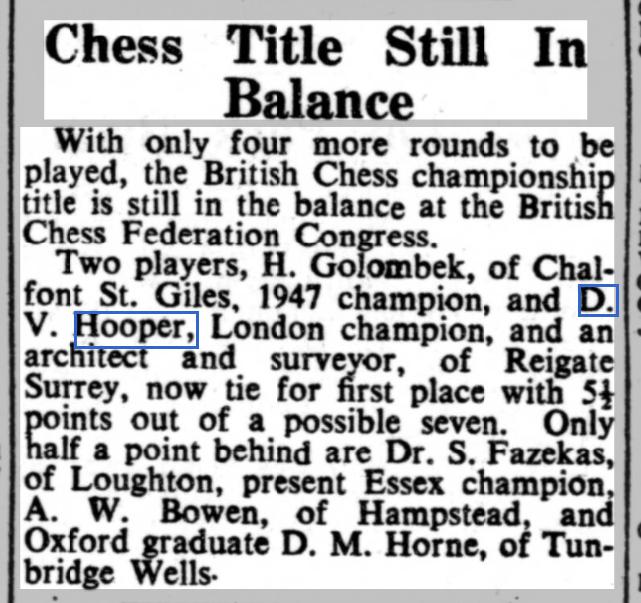
In 1950 aged 35 David married Joan M Higley (or Rose!) in the district of South Eastern Surrey.
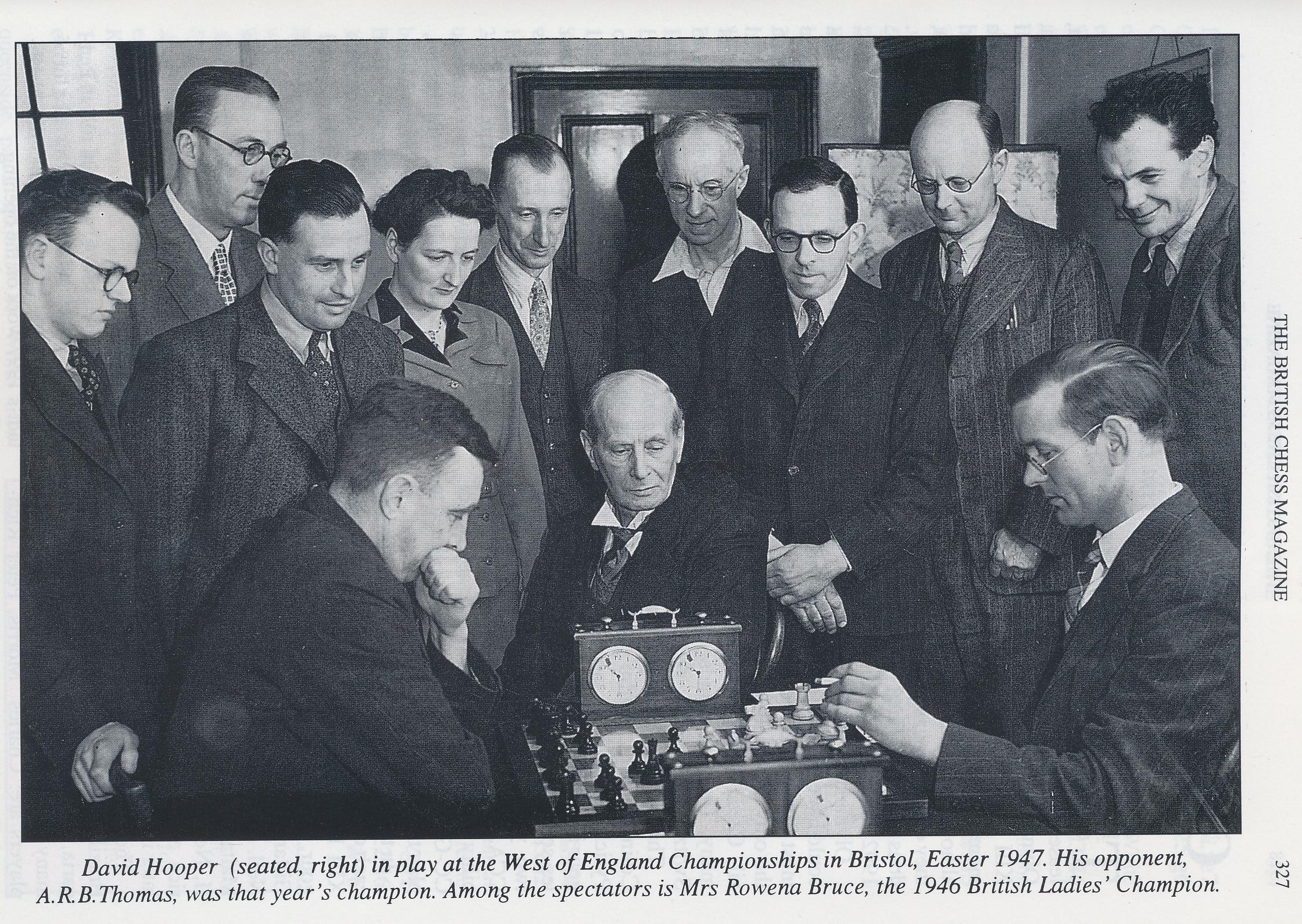
Leonard Barden kindly provided us with these memories of David:
“He liked to drive very fast while keeping up a stream of talk with his passenger. I recall his transporting me to the 1950 British Championship in Buxton and feeling in a state of low-key terror the whole journey. When we reached a sign Buxton 30 I felt a great sense of relief that the ordeal was nearly over. Returning two weeks later, some miles down the road we passed Milner-Barry and Alexander in a small car, slowly and carefully driven by M-B whose head nearly reached the roof. As we swept by David gave a celebratory hoot.
I thought this was just me being unduly nervous, but years later Ken Whyld told me he felt the same as a Hooper passenger and that so did most others. David was actually very safe and I don’t think he ever had an accident.
David worked in Middle East for some years and was the chief architect for the construction of a new airport at Aden.
A Guide to Chess Endings was 90% written by David, with chapters then looked over by Euwe and his chess secretary Carel van den Berg. All David’s endgame books are lucidly written and it is a pity where they are not available in algebraic.
When The Unknown Capablanca was published I asked for and received from David an inscribed copy for Nigel Short‘s ninth birthday., which I presented to him personally at an EPSCA team event. Curious to know how it was received, I phoned Nigel’s father (David) a couple of days later and was informed “He’s already on to Capa’s European Tour” (which is I think about 100 pages into the book).” – Thanks Leonard!
Ken Whyld wrote an obituary which appeared in British Chess Magazine, Volume 118 (1998), Number 6, page 326 as follows :
DAVID VINCENT HOOPER died on 3rd May this year in a nursing home in Taunton. He had been in declining health for some months. Born in Reigate, 31st August 1915, his early chess years were with the Battersea CC and Surrey.

He won the (ed. Somerset) County Championship three times, and the London Championship in 1948. His generation was at its chess peak in the years when war curtailed opportunities, but he won the British Correspondence Championship in 1944.
His games from that event are to be found in Chess for Rank and File by Roche and Battersby.
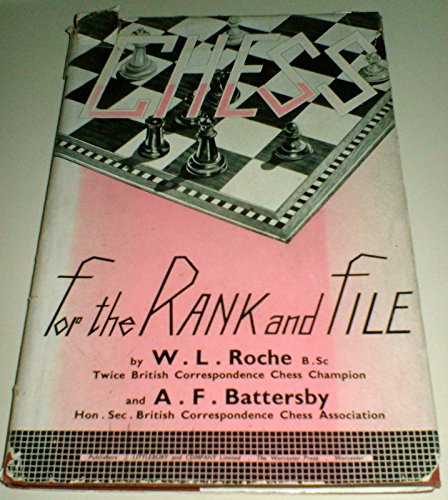
Also at that time, he won the 1944 tournament at Blackpool, defeating veteran Grandmaster Jacques Mieses.
David was most active in the decade that followed, playing five times in the British Championship.
His highest place there was at Nottingham 1954, when, after leading in the early stages, he finished half a point behind the joint champions, Leonard Barden and Alan Phillips.
David was in the British Olympic team at Helsinki 1952, and in the same year accidentally played top board for England in one of the then traditional weekend matches against the Netherlands. British Champion Klein took offence at a Sunday Times report of his draw with former World Champion Dr. Euwe on the Saturday and refused to play on Sunday. Thus David was drafted in to meet Euwe, and acquitted himself admirably. Even though he lost, the game took pride of place in that month’s
BCM.
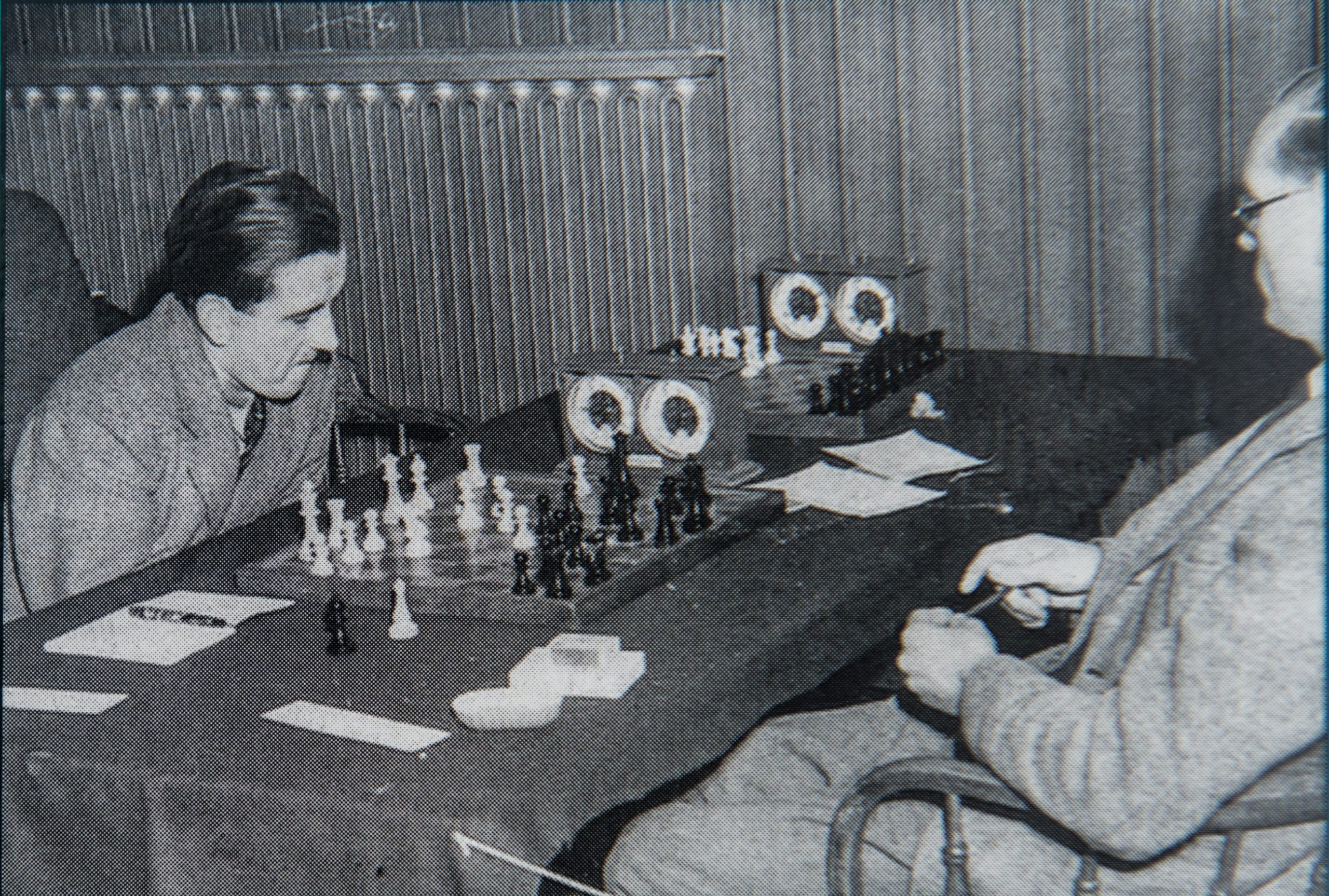
In the following game, played in the Hastings Premier l95l-2, he found an improvement on Botvinnik’s play against Bronstein in game 17 of their 1951 match, when 7.Ng3 was played because it was thought that after 7.Nf4 d5 it was necessary to play 8 Qb3.
In his profession as architect David worked in the Middle East for some years from the mid-1950s, and when he returned to England he made his mark as a writer. His Practical Chess Endgames
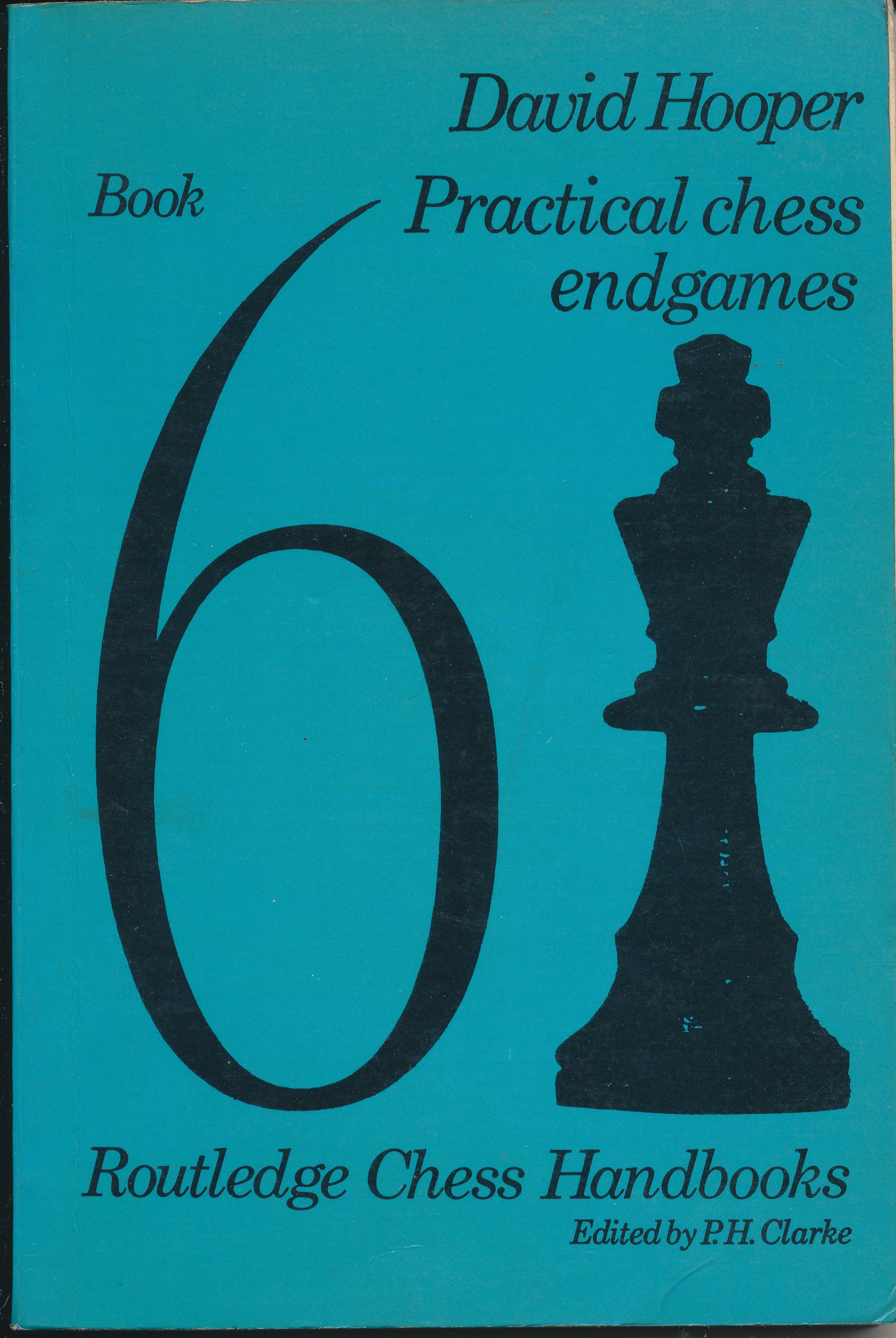
has an enduring appeal. Two of his books appeared in the Wildhagen biographical games series on Steinitz, and Capablanca. The last was written jointly with Gilchrist.
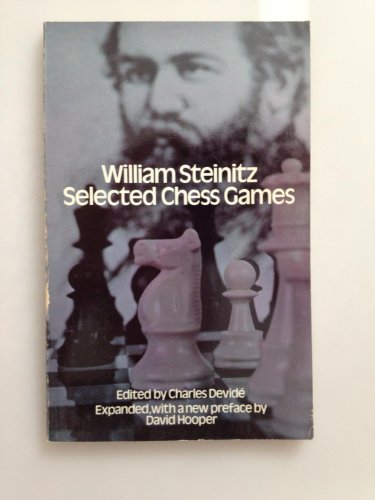
With Euwe he wrote A Guide to Chess Endings;
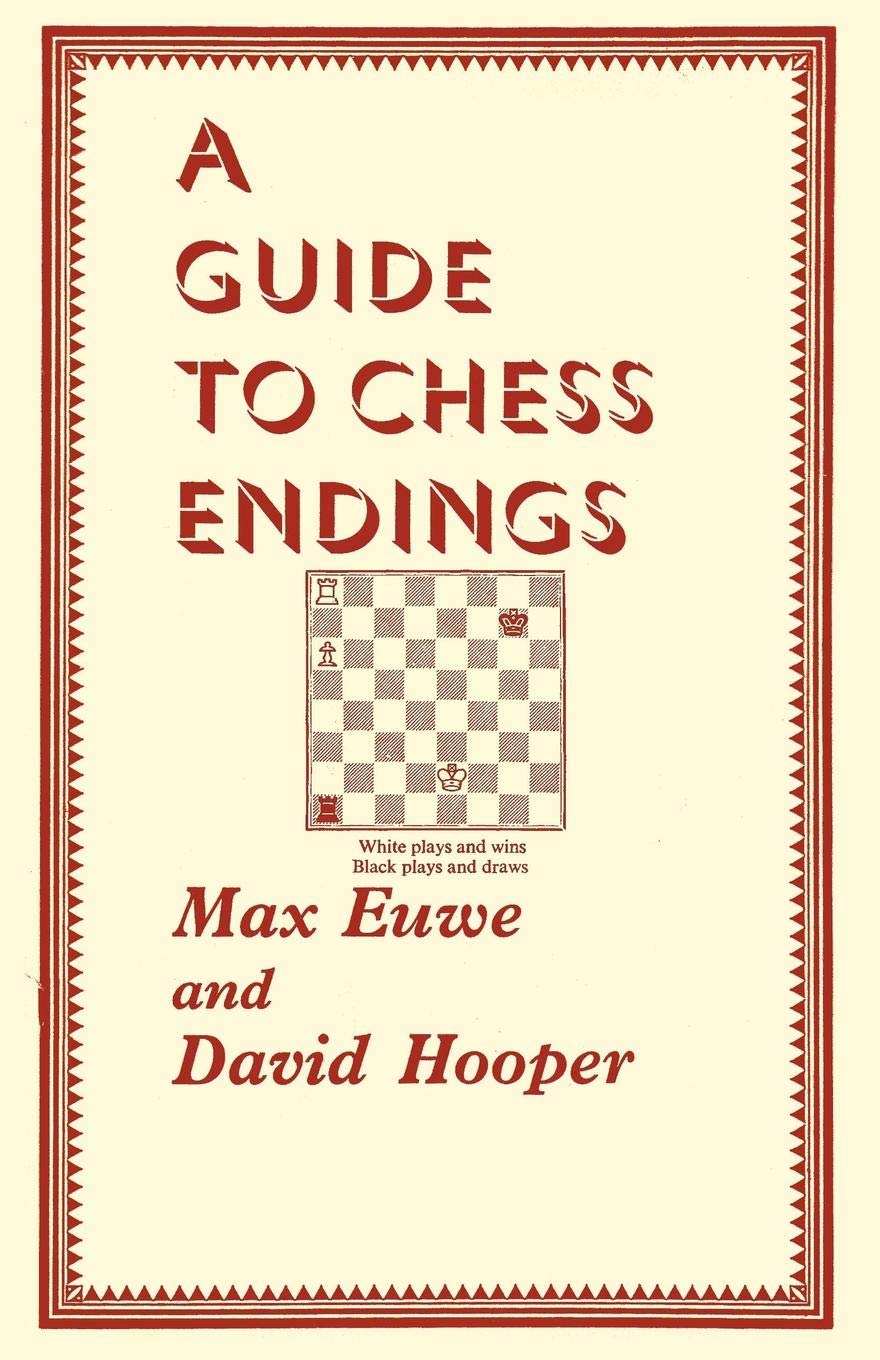
with Cafferty, A Complete Defence to 1.e4;
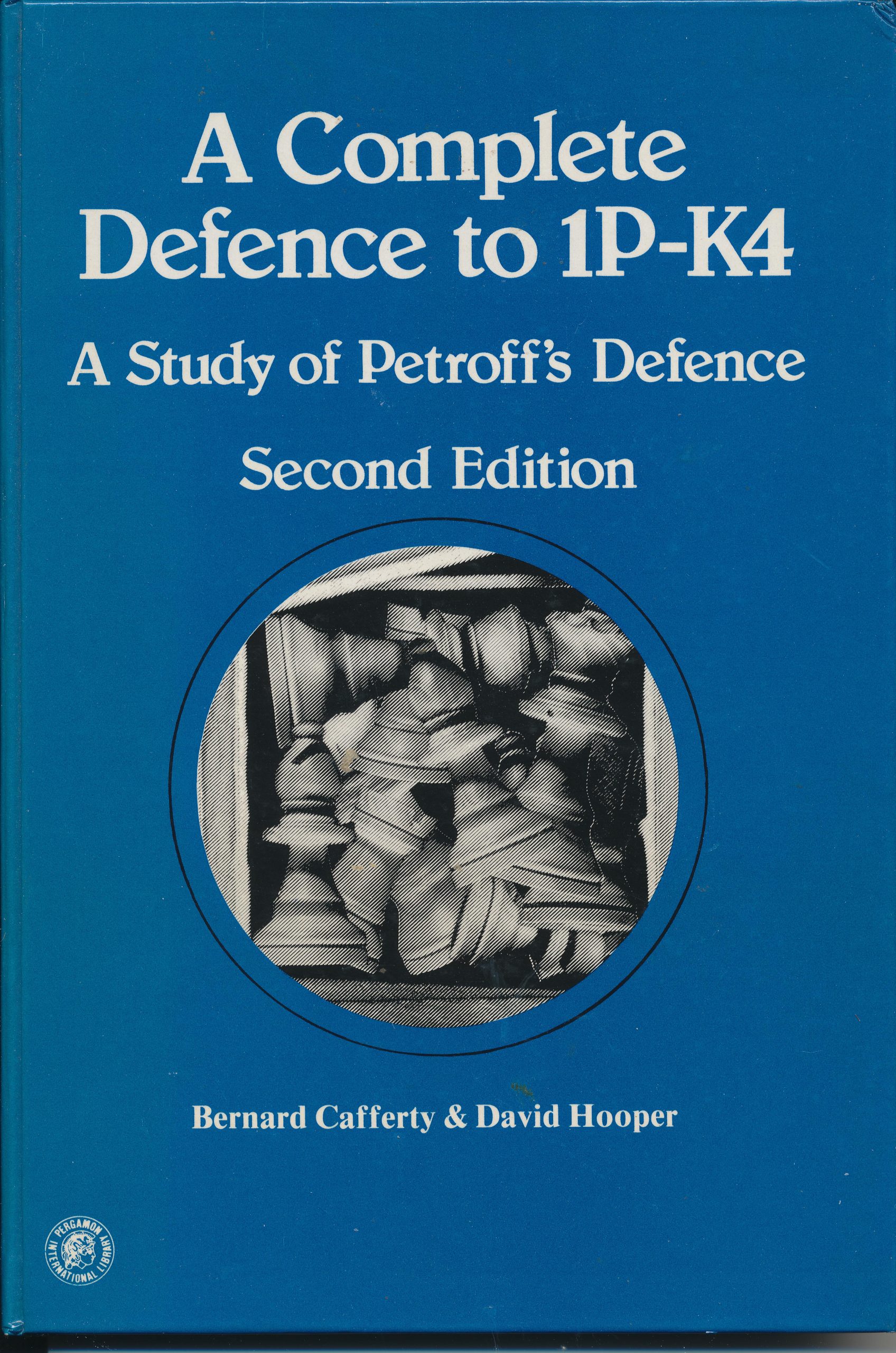
A Pocket Guide to Chess Endgames;
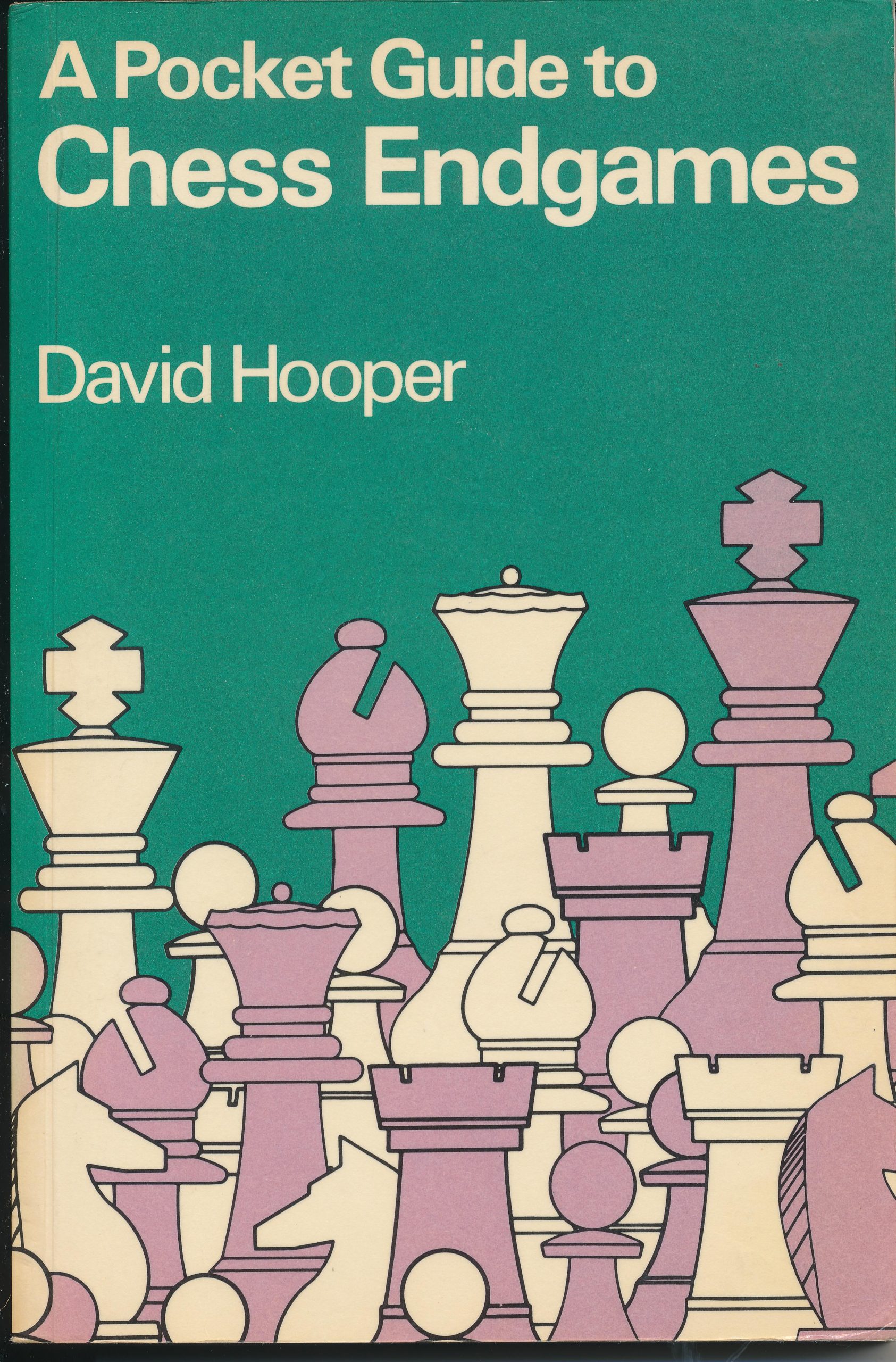
A Complete Defence to 1.d4;
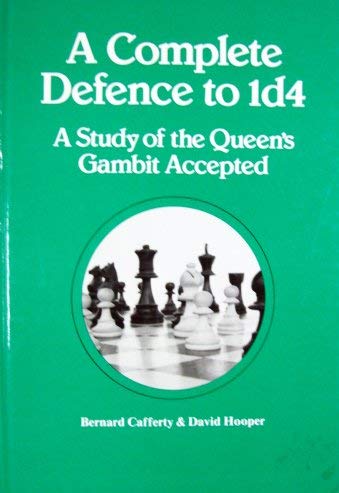
and Play for Mate;
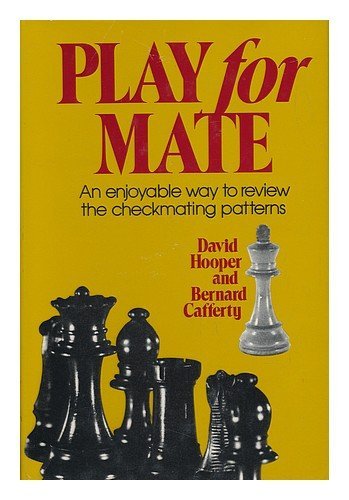
with Brandreth The Unknown Capablanca,
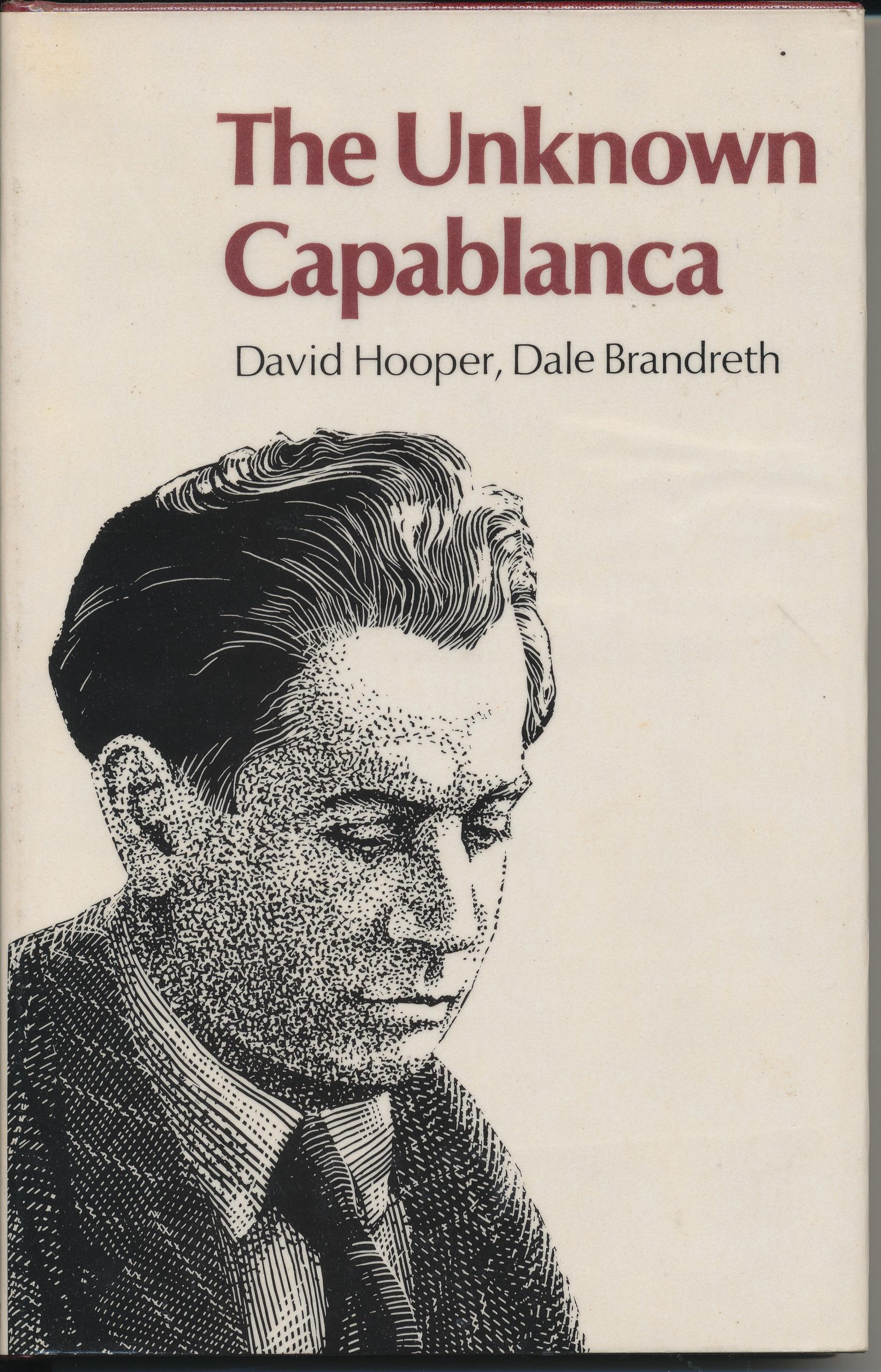
and with Ken Whyld, The Oxford Companion to Chess.
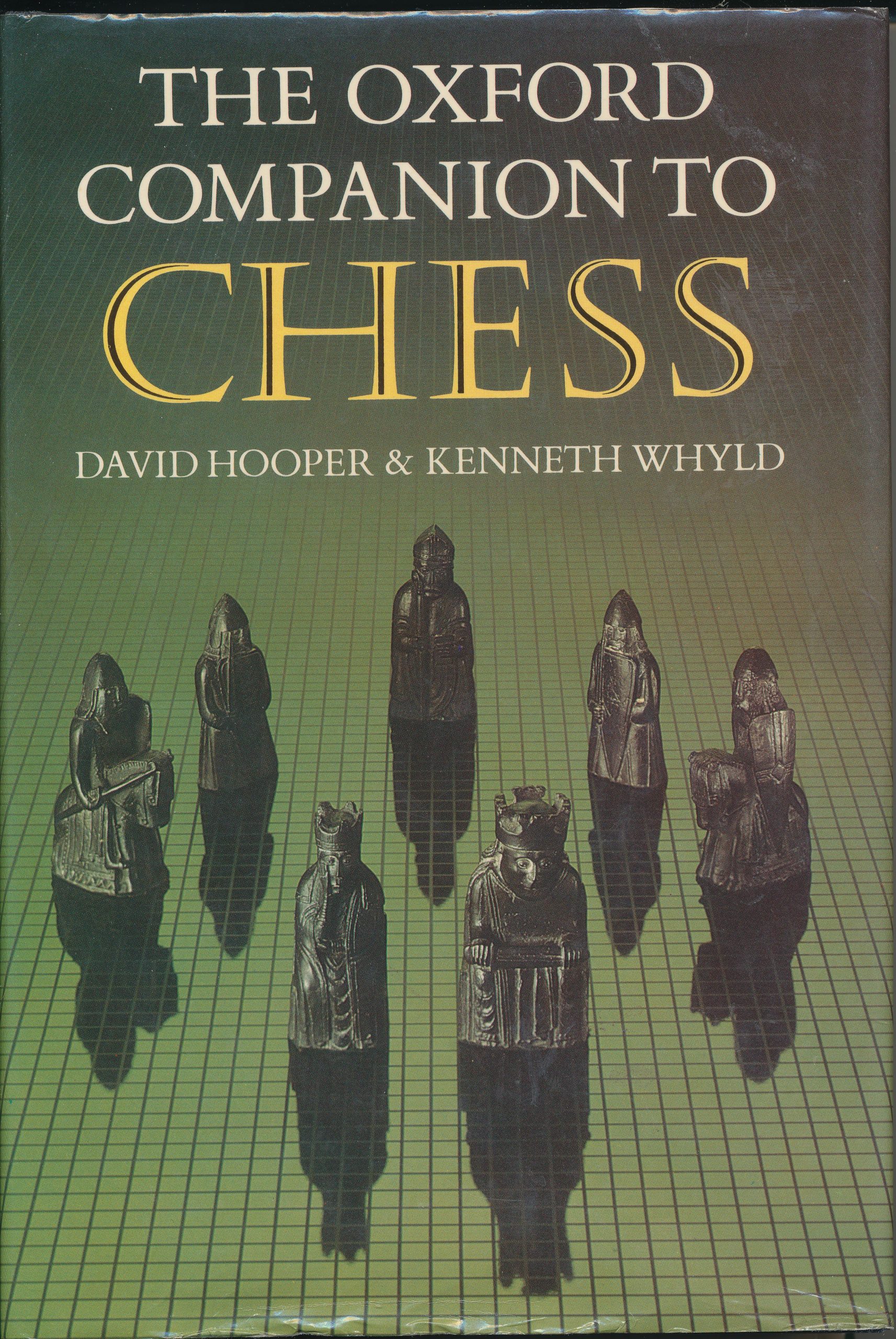
Ken Whyld
From The Encyclopaedia of Chess by Harry Golombek :
British amateur (an architect by profession) whose best result was =5 in the British Championship at Felixstowe 1949 along with, amongst others, Broadbent and Fairhurst.
Hooper abandoned playing for writing about chess and has become a specialist in two distinct areas. He is an expert on the endings and has a close knowledge of the history of chess in the nineteenth century.
His principal works : Steinitz (in German), Hamburg, 1968; A Pocket Guide to Chess Endgames, London 1970.
Here is an interesting article from Edward Winter
Here is his brief Wikipedia entry.

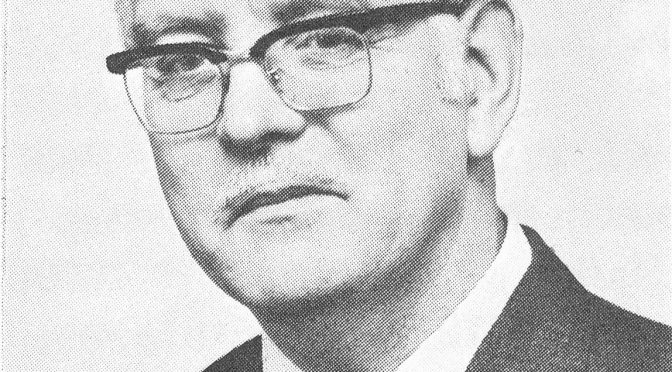
My mother’s name was spelt Isabel. In your article you have spelt it as Isobel. My mum will be turning in her grave until you correct this. Michael Vane-Hunt. ( Isabel’s oldest son)